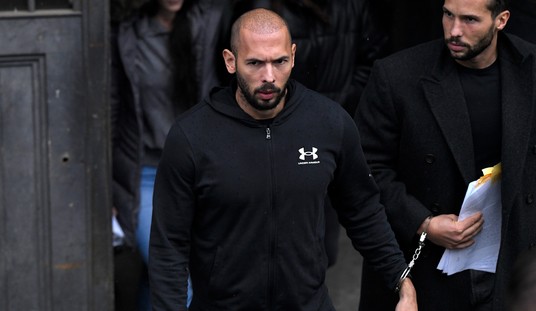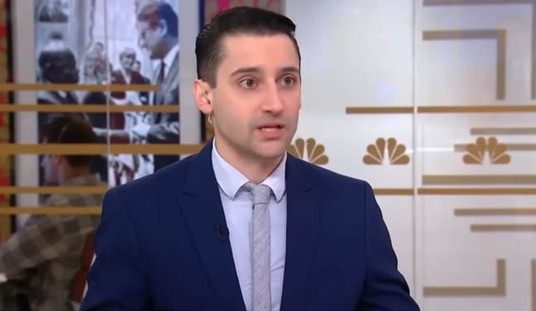A few months ago Ed noted the astonishing fact that fully a quarter of all deaths in the Netherlands are now induced, whether by suicide, “palliative sedation” (in which a patient is placed into a coma and allowed to dehydrate to death), or euthanasia — with the latter accounting for more than 6,000 deaths in 2017 alone.
This case must be among the most horrendous.
“It’s finished. I have not really been alive for so long, I survive, and not even that… I will get straight to the point: within a maximum of 10 days I will die,” [Noa] Pothoven wrote in her native Dutch on Saturday. “After years of battling and fighting, I am drained. I have quit eating and drinking for a while now, and after many discussions and evaluations, it was decided to let me go because my suffering is unbearable.”…
Pothoven openly shared her long struggle dealing with post-traumatic stress disorder, depression, and anorexia on social media. The teenager also penned an award-winning autobiography titled Winning or Learning, which detailed her assault and rape at a young age and her work to try and overcome the psychological ramifications. She concealed the sexual abuse for many years out of a sense of shame and fear, according to reports.
In her book, she wrote that she was sexually assaulted at a school party when she was 11 years old, and was raped by two men just three years later when she was 14 years old.
Pothoven initially sought euthanasia in The Hague but was turned away due to her age — although children as young as 12 are eligible, provided a doctor concludes that their psychological anguish is unbearable. To be legally euthanized in the Netherlands she needed two doctors to say her death was justified plus ratification by a “post-mortem panel” — a real “death panel” — consisting of a doctor, judge, and ethics expert. A lot of people signed off on liquidating a traumatized 17-year-old, in other words. “It is very odd,” tweeted British writer Ben Sixsmith, “that the same people who believe in rehabilitative justice for hardened criminals can believe a child is so beyond repair that the state should consent to their death.” Indeed, courts in the Netherlands will refuse to extradite a murder suspect to a death-penalty jurisdiction without assurances that capital punishment won’t be sought. Their moral lodestar on executing people is consent, not desert.
Can someone in the grip of deepest depression properly “consent” in the first place? Best not to think too hard about such things.
I can’t find numbers on how many people are euthanized due to emotional rather than terminal physical suffering, but the Guardian noted another case of the former in a story about Dutch “mercy killings” in January:
In November 2016, Monique and Bert de Gooijer, a couple from Tilburg, became minor celebrities when a regional paper, the Brabants Dagblad, devoted an entire issue to the euthanasia of their son, an obese, darkly humorous, profoundly disturbed 38-year-old called Eelco…
Eelco was euthanised only after long thought and discussions with his family. He enjoyed a good laugh with the undertaker who had come to take his measurements for a super-size coffin. He was able to say farewell to everyone who loved him, and he died, as Monique and Bert assured me, at peace. There might be a word for this kind of suicide, the kind that is acceptable to all parties. Call it consensual.
“You try to make your child happy,” Monique said in her matter-of-fact way, “but Eelco wasn’t happy in life. He wanted to stop suffering, and death was the only way.” Eelco came of age just as euthanasia was being legalised. After years of being examined by psychiatrists who made multiple diagnoses and prescribed a variety of ineffective remedies, he began pestering the doctors of Tilburg to end his life.
Can a “profoundly disturbed” man consent to having his life ended? Either way, notes the Guardian, euthanasia is covered by local health insurance. Something for the Medicare For All wishlist, presumably.
The Guardian piece is lengthy but worth reading in full — particularly the end, which describes growing support within the government for what’s delicately described as a “completed life” pill for anyone over the age of 70. A suicide pill, in other words, which patients could take on their own to spare doctors from the emotional ordeal of having to act as killers rather than life-savers. This process isn’t getting harder, it’s getting easier. And it’s a cinch once the “completed life” pill is approved that pressure will build to expand eligible patients from senior citizens to anyone who feels their life has been “completed,” like Noa Pothoven. Exit question: How many years will it be before the majority of deaths in the Netherlands are induced?
Update (6/5): Every English-language report on Pothoven that I read yesterday described her death as state-supported euthanasia, but a Politico reporter who’s read the original Dutch coverage claims that the state wasn’t involved. In fact, Pothoven’s request for euthanasia was denied; she died because she began to refuse food and water and her parents, after many years of watching her suffer through hospitalizations, declined to keep her alive by force-feeding. A gruesome story either way, but not a case of the Dutch government putting a young girl out of her misery — if the Politico reporter’s account is correct.








Join the conversation as a VIP Member